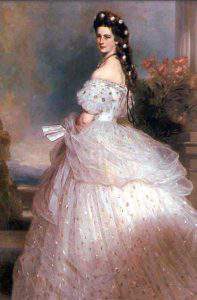A second-period drama series about one of the most well-known and outstanding women in history, Sisi, the Queen of Hungary, is in the works! Production starts next year.
Actually, there is more than one group who wants to make a new period drama series about the famous empress.
Variety reports that the show will be made by Germany’s Story House Pictures and Austria-based Satel Film. They are collaborating on Sisi, a six-part drama which will go into production in 2020.
Andreas Gutzeit and Heinrich Ambrosch are producing. Writers of the show are Dorothee Schön and Sabine Thor-Wiedemann. The story will be told from the perspective of Sisi’s closest confidants, and the series takes a new look at her life, which reveals a multi-layered woman as she evolves from the youthful Sisi into Empress Elisabeth. Gutzeit said about the series:
“‘Sisi’ is a premium TV series that revives the splendor of the Habsburg monarchy and creates a memorable figure. Audiences all over the world will fall in love with her all over again.”
Picture Perfect Federation is also looking into a new Sisi project. They decided to collaborate with Amy Jenkins, a writer who has worked on Netflix’s The Crown. She will help to adapt Allison Pataki’s bestselling books into a series that will also tell the story of Sisi’s gradual embrace of her imperial power.
About Sisi
Elisabeth Amalie Eugenie Wittelsbach was born on 24 December 1837. She married Austrian Emperor, Franz Joseph I in 1854. She travelled a lot and loved Hungary.

She developed a deep affection for the country and its culture and also learned the Hungarian language. In 1864, for instance, she looked for a companion with whom she could practice the language. That is how Ida Ferenczy became her loyal maid with whom she had a very close relationship.
Later, she asked Miksa Falk, journalist of the Pesti Napló, to teach her not only the language but Hungarian history and culture, too. To satisfy her demand, Falk gave her some works prohibited in the monarchy, like Blick by Széchenyi or the book of József Eötvös written in Geneva about the war of independence of the country.